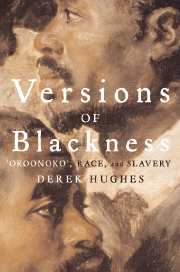Book contents
- Frontmatter
- Contents
- Introduction
- A Note on the Texts
- Chronology
- PART ONE THE MAJOR TEXTS
- PART TWO CONTEXTS: EUROPE, AMERICA, AND AFRICA
- DISCUSSIONS OF COLONIALISM
- Iewes in America
- Americans no Iewes
- Leviathan
- A Brief View and Survey of the Dangerous and Pernicious Errors to Church and State, in Mr. Hobbes's Book, entitled ‘Leviathan’
- Two Treatises of Government
- The Germantown Protest
- Bibliography
- Index
Two Treatises of Government
Published online by Cambridge University Press: 05 June 2012
- Frontmatter
- Contents
- Introduction
- A Note on the Texts
- Chronology
- PART ONE THE MAJOR TEXTS
- PART TWO CONTEXTS: EUROPE, AMERICA, AND AFRICA
- DISCUSSIONS OF COLONIALISM
- Iewes in America
- Americans no Iewes
- Leviathan
- A Brief View and Survey of the Dangerous and Pernicious Errors to Church and State, in Mr. Hobbes's Book, entitled ‘Leviathan’
- Two Treatises of Government
- The Germantown Protest
- Bibliography
- Index
Summary
Though the earth, and all inferior Creatures be common to all Men, yet every Man has a Property in his own Person. This no Body has any Right to but himself. The Labour of his Body, and the Work of his Hands, we may say, are properly his. Whatsoever then he removes out of the State that Nature hath provided, and left it in, he hath mixed his Labour with it, and joyned to it something that is his own, and thereby makes it his Property. It being by him removed from the common state Nature placed it in, it hath by this labour something annexed to it, that excludes the common right of other Men. For this labour being the unquestionable Property of the labourer, no Man but he can have a right to what that is once joyned to, at least where there is enough, and as good left in common for others….
Thus this Law of reason makes the Deer, that Indians who hath killed it; 'tis allowed to be his goods who hath bestowed his labour upon it, though before, it was the common right of every one. And amongst those who are counted the Civiliz'd part of Mankind, who have made and multiplied positive Laws to determine Property, this original Law of Nature for the beginning of Property, in what was before common, still takes place; and by vertue thereof, what Fish any one catches in the Ocean, that great and still remaining Common of Mankind; or what Ambergriese any one takes up here, is by the labour that removes it out of that common state Nature left it in, made his Property who takes that pains about it.
- Type
- Chapter
- Information
- Versions of BlacknessKey Texts on Slavery from the Seventeenth Century, pp. 363 - 367Publisher: Cambridge University PressPrint publication year: 2007
- 22
- Cited by



